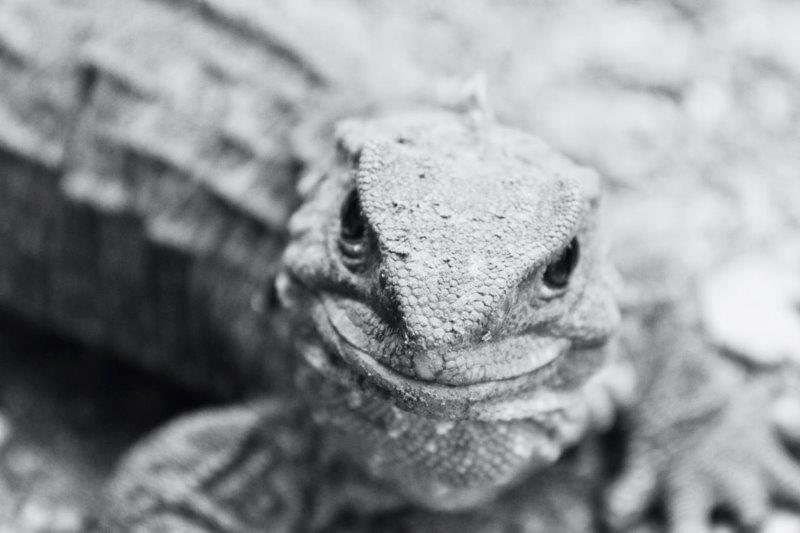A Northland Iwi has partnered with an international research team working to sequence the tuatara genome.
Ngātiwai hold kaitiakitanga (guardianship) over the tuatara populations located on islands in the far north of New Zealand. The study authors, which include the Ngātiwai Trust Board, say the need to engage with and protect the rights of Indigenous communities has “seldom been considered in the genome projects published to date”.
The SMC asked experts to comment on best practices in the emerging field of Indigenous data sovereignty.
Professor Peter Dearden, director, Genomics Aotearoa, comments:
“The sequencing of the tuatara genome is an exciting milestone, not just for the biological understanding it provides on tuatara evolution, breeding and disease, but also because New Zealand is now producing invaluable genomic information on its own taonga species.
“Working with Ngātiwai, the Māori iwi (tribe) who hold kaitiakitanga (guardianship) over the tuatara populations on islands in the far north is a positive example of the partnership approach we can achieve in New Zealand.
“Both the partnership and the processes used to sequence and analyse the unique genomic features of the tuatara have opened doors for us to work together understand and protect other endangered species in New Zealand.”
No conflict of interest
Karaitiana Taiuru (Ngāi Tahu, Ngāti Kahungunu, Ngāti Rārua), STEAM Māori Cultural Advisor at Taiuru & Associates Ltd, final year Doctoral Student at Te Whare Wānanga o Awanuiārangi, comments:
“For Māori, whakapapa is sacred and a closely guarded knowledge that inter-relates all natural objects and living things together in a hierarchical manner. Whether it is a stone, a plant or water, they all have a genealogical story and are of cultural significance, a taonga to Māori, whanau, hapū and Iwi. Genomic sequencing is a modern scientific method of intrusively viewing the whakapapa of a species. The cultural issues and benefits and issues are yet to be realised.
“The partnership between the researchers in this case and the local Iwi Ngātiwai is a positive step forward in Te Tiriti/Treaty of Waitangi relationships and will set a platform for when New Zealand signs the Convention for Biological Diversity’s Nagoya Protocol on Access to Genetic Resources and the Fair and Equitable Sharing of Benefits Arising from their Utilization. Other species will require more consultation and considerations, including dead and extinct species.
“Both parties need to be aware of the decades of biological piracy (intentional and unintentional) by researchers both nationally and internationally and the fact that it still occurs today. An example is the Navajo Nation who recently banned genetic research because of bio-piracy. Indigenous Australians have a clause that they can opt out at any time with researchers.
“There are a number of cultural issues that are not considered in the paper and supplement paper. This is likely due to the facts that most Iwi lack the scientific backgrounds to understand the full impacts of genome sequencing and the potential cultural impacts. There are no published culturally appropriate guidelines for partnering, and sequencing genomes of Taonga Species. There is a western attempt at doing so in the supplement paper. But with no cultural/science guidelines, this would be difficult and perhaps the highest risk for all parties.
“Partnerships between Māori and researchers should be fully transparent, full disclosure and scientists must acknowledge the: physical, spiritual, cognitive and historical connections between species and Māori. In a western perspective, a sequenced genome may only be binary or strings of A, C, G, and T letters, but the data (biological or digital) is still the physical species in a Māori perspective. If that data is stored overseas, there could be Māori Data Sovereignty issues in the future and repatriation issues of sequenced genomic data.
“Intellectual Property Rights is a major concern with Taonga Species data being made open. From a western perspective, it is the same as giving a member of your family’s DNA to be sequenced to a researcher and making that open data. Do you have the right to speak and give permission on behalf of all of your family? If patents for commercial products and other commercial agreements arise including other research, consideration must be made to who will have rights to royalties.
“Benefits that researchers could consider as a part of partnering with Māori, whānau, hapū and Iwi could include education opportunities and mentoring for Māori to enter into genetic research and other sciences and joint ownership of research outcomes including any acknowledgements of individuals and groups who contributed traditional knowledge and access to species.”
No conflict of interest.
Dr Phillip Wilcox (Ngāti Kahungunu ki te Wairoa, Ngāti Rakaipaaka, Rongomaiwahine), Senior Lecturer|Pūkenga Mātua, University of Otago|Te Whare Wānaka o Otakou, comments:
“The release of the tuatara genome assembly is a significant milestone in the evolving history of Aotearoa/New Zealand science, and in particular, a potential mechanism for resolution to the often conflicting goals of career-path scientists keen for high impact publications on the one hand, with those of Māori communities whom have very different priorities on the other.
“The WAI262 Treaty of Waitangi (ToW) claim – where claimants have asserted Māori have rights over genetic resources of indigenous species – is not yet resolved. Research such as this attempts to provide such a resolution, by reaching agreements with specific iwi.
“However ToW-based rights – as well as indigenous data sovereignty – are effectively extinguished once data are released into the public domain. So too, are the opportunities to benefit from any derived commercial or medical products or services.
“While this research represents a step in the right direction, more effective mechanisms are needed to ensure that such rights are maintained – especially for those iwi and hapū where such species are now locally extinct as a result of colonisation – and that the ostensibly noble cause of advancing knowledge does not continue to be a conduit for Māori dispossession. ”
No conflict of interest.
